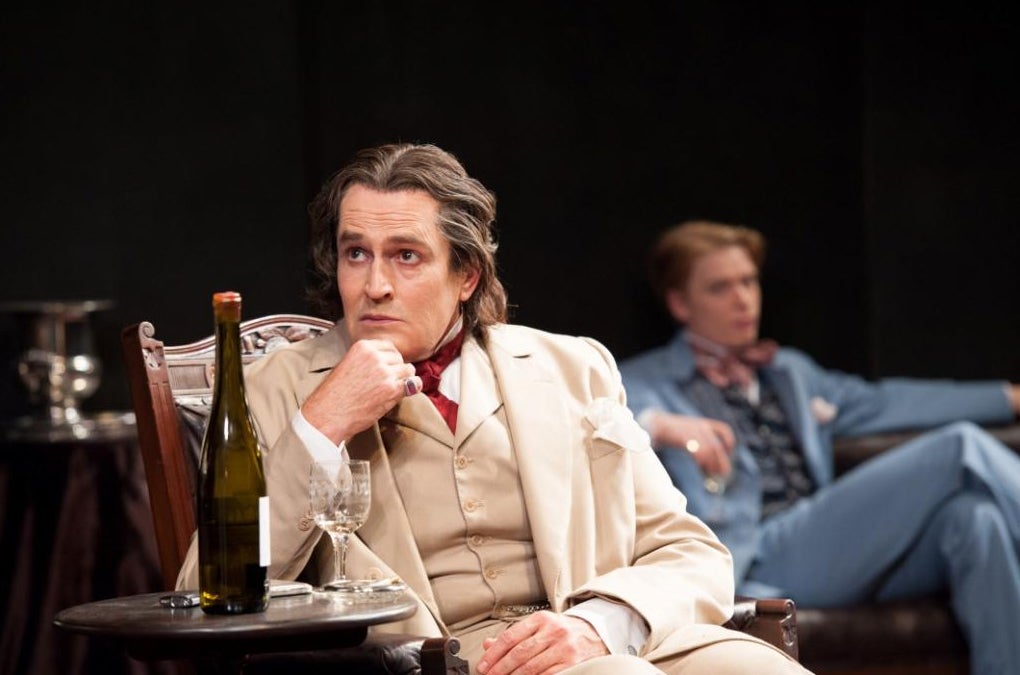The Judas Kiss, Duke of York's, London

David Hare was wittily spot-on when he said recently that “there's a sort of line where you can't tell where Wilde ends and Rupert [Everett] begins”. And Hare is not the only person to note a Wildean spirit in the prose of the actor's own two splendid volumes of autobiography – “the same heroic cheerfulness in the face of disaster”, as the dramatist puts it.
This gift for rising above the catastrophic with a penetrating flippancy – for asserting a personally costly kind of victory over the Establishment by seeing through its values, and with a wry, stoical loftiness, refusing to subscribe to them – makes Everett heaven-casting as the lead in Hare's The Judas Kiss.
Most of us underestimated the play when it first appeared (starring Liam Neeson and Tom Hollander) in 1998. Watching this welcome West End transfer of Neil Armfield's sparely staged, extraordinary moving Hampstead Theatre revival, I now find myself impressed by many things. One is the acuity with which Hare puts his finger on the essential difference between Wilde and his nemesis, Lord Alfred “Bosie” Douglas, who is played here with a flouncy, hair-flicking petulance and aggrieved competitiveness by Freddie Fox. “The governing principle of my life has been love,” Wilde eventually tells him. “But of yours, it has been power.”
That's the key line of a drama which, full of suggestive symmetries, zeroes in on two pivotal moments in Wilde's life. In the first, holed up at the Cadogan Hotel and facing arrest for gross indecency, he declines to flee to the continent. In the second, in penurious post-prison exile in Naples, he defies an ultimatum to abandon Bosie on the very day that Bosie proceeds to desert him.
To agree to either course, Wilde professes, would be to stoop to the mean-minded morality of his persecutors. Everett's magnificently searching performance shows you the nobility and the folly, the humane self-sacrifice and the calamitous obduracy of this stance.
Painted, bloated with body-padding and in wrecked dinner jacket, this Wilde cuts a lonely Beardsley-meets-Beckett figure as he refuses to budge from his chair in the second half, responding to Bosie's various treacheries with a gently acerbic (but never spiteful) irony that is terribly touching in its sorrowful, residual love. The character extends a philosophical pity to Bosie, himself a victim of the Queensberry family's mania for power.
The play does not do so enough, but this revival – with Cal MacAninch terrific as the loyal, long-suffering Robert Ross – is obligatory viewing.
To 6 April; 0844 871 7623
Join our commenting forum
Join thought-provoking conversations, follow other Independent readers and see their replies
Comments
Bookmark popover
Removed from bookmarks